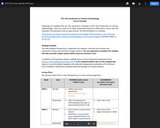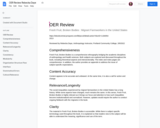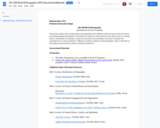
Introduction to Cultural Anthropology course calendar using the open textbook Perspectives: http://sacc.americananthro.org/publication/open-source-textbook/
Course Description
Considers contemporary human cultures from an anthropological perspective. Covers fieldwork, language, race, gender, sex and marriage, kinship, politics, world view, religion, economics, and globalization from a cross-cultural perspective. This course compares cultures found around the globe, focusing closely upon at least two specific cultures, with extended discussion of additional cultures and societies as appropriate. Greater understanding of particular cultures will be achieved through an application of the comparative method.
Upon completion of the course students should be able to:
Describe basic concepts, methods, and theories associated with cultural anthropology.
Use an understanding of anthropology to identify and compare values, beliefs, norms, economic systems, and social organization or institutions in a variety of societies in different world regions.
Examine systems of power and social justice issues related to U.S. society and other cultures from an anthropological perspective.
Explore fieldwork methods and ethical considerations of doing anthropological fieldwork.
- Subject:
- Anthropology
- Social Science
- Material Type:
- Syllabus
- Author:
- Rebecka Daye
- Date Added:
- 03/10/2020

